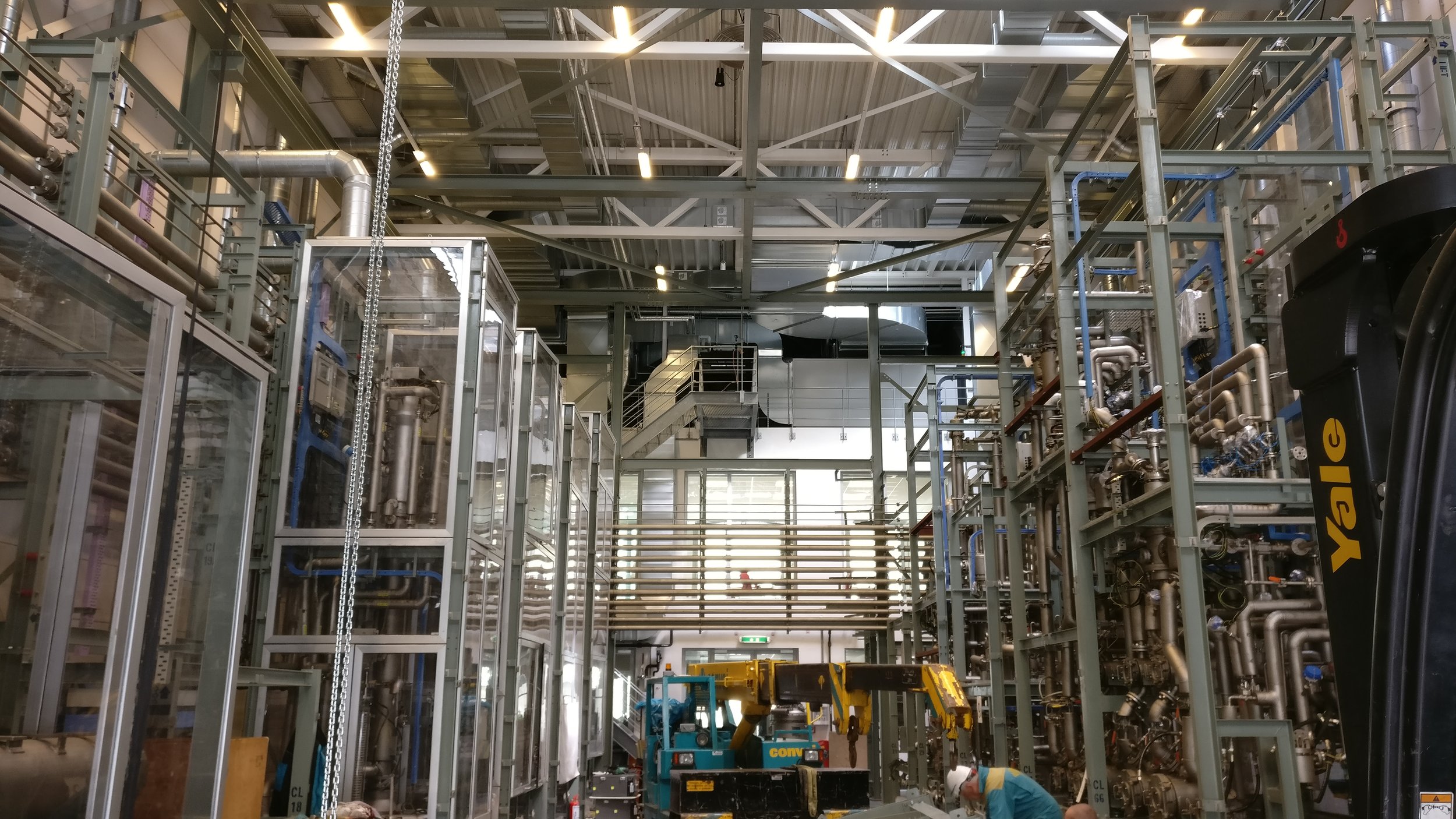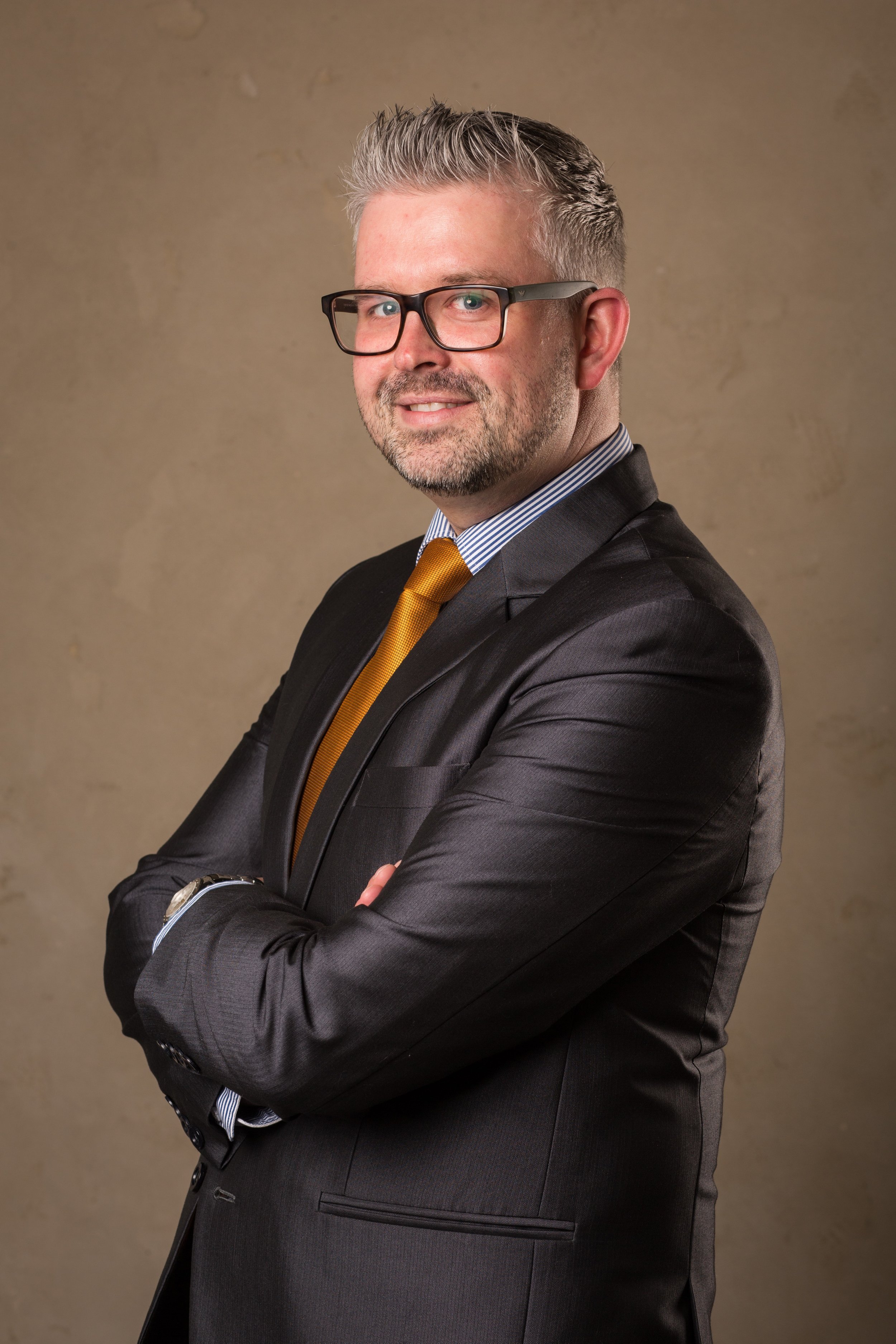More and more Indian companies are investing in the Netherlands. Manufacturer of physical separation devices for the (chemical) industry, Technoforce from Nashik, Maharastra, settled at the Brightlands Chemelot Campus in Geleen five years ago. "Thanks to the Dutch branch, the whole company professionalises," says Ben Bovendeerd, Managing Director of Technoforce in the Netherlands.
Pilot plant Technoforce (Photo: Technoforce)
Indian company Technoforce develops and manufactures separation plants for the manufacturing industry, in Nashik, a city some four hours' drive from Mumbai. "We build enormous industrial machines, sometimes as high as four floors, that can separate all kinds of complex mixtures such as chemicals, waste water, oils and fats," explains director Ben Bovendeerd. "Think, for example, of water treatment plants from which components must be removed before factories are allowed to discharge the waste water." The customer base includes large pharmaceutical companies, producers of (bio-based) chemicals and the food industry. "In principle, wherever production takes place, separation is required, because without separation there is no pure substance."
Technoforce has a European Pilot Plant Development Centre in Geleen. Bovendeerd: "Customers come to us for tailor-made solutions. Since this involves capital-intensive installations, ranging from one tonne to several million, it is important to minimise the investment risks for customers. Optimisation and evaluation in pilot plants is crucial in order to be able to offer a robust and economical solution. In the pilot plant sufficient tests are performed to be able to calculate a reliable upscaling to industrial production scale and to make a process design, for which Technoforce also gives a process guarantee. Then the final product, a modular separation plant complete with piping, instruments, pumps, vacuum systems and automation is built in Nashik."
Before the Indian company opened a branch in Geleen, it regularly received requests from Europe, but these deals often fell through somewhere in the process. "In our business, you have to be able to spar with your customer, exchange products/chemicals and carry out tests," says Bovendeerd. "That was simply too difficult because of the distance. Just try exporting a container with 1,000 kilos of waste water to India for a test. You can't do that just like that."
Director Technoforce Netherlands Ben Bovendeerd (Photo: Technoforce)
Five years ago, the management decided it was time for a pilot plant development centre in Europe. The company chose the Netherlands, partly because of its good command of the English language. The Brightlands Chemelot Campus soon caught their eye because of its favourable location (between Germany and Belgium and three airports in the vicinity) and the good facilities on the campus. Bovendeerd: "Chemelot is a perfect match for our business; in theory, half of the companies at Chemelot could be our customers. The campus' umbrella environmental permit was also an important reason for choosing Chemelot. "It would have been far too expensive and time-consuming to set up our test centre outside this complex."
The Dutch branch does not only help to win European orders, notes Bovendeerd, but also leads to further professionalisation of the entire company. "By establishing ourselves here, we are raising the level of the entire organisation. We already complied with European legislation, but we have now obtained all kinds of new certifications. ICT has also been improved and we have taken a firm grip on the company's image. An international advertising agency has developed a new house style, including a new logo and strict guidelines for all our communications, which has improved the image."
As an Indian company, Technoforce sometimes has the wrong impression, acknowledges Bovendeerd. "Many customers think that Indians produce inferior quality, but that is a thing of the past. I always encourage people to visit our workshops in India, because then the penny drops. Our factory is heavily automated, with welding robots and production management systems, for example. Most people don't know what they see. Technologically, we can measure up to the European competition. We have to, because we're not just competing with them in Europe, but all over the world."


